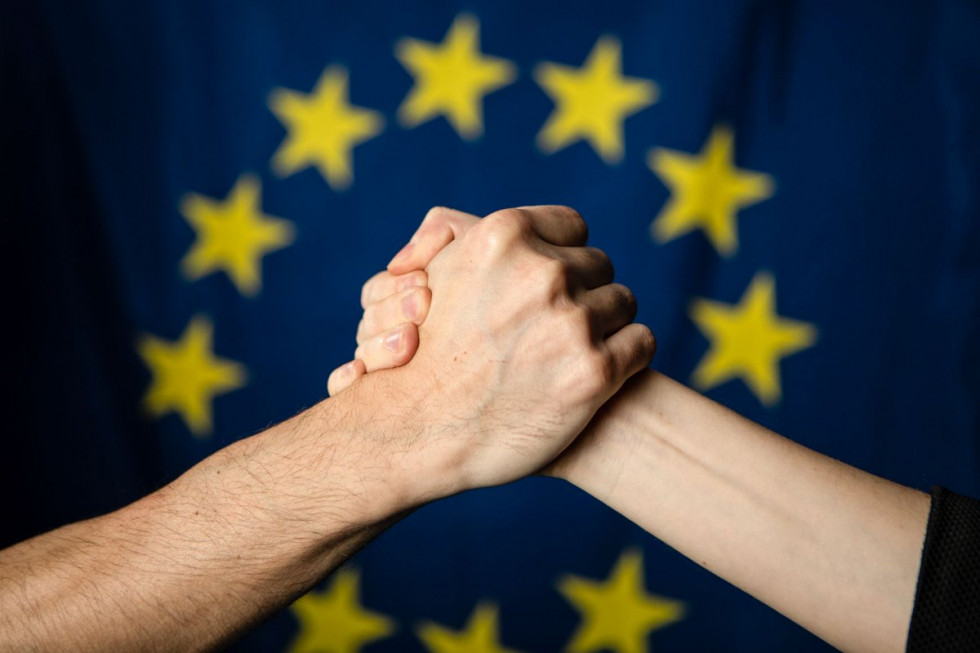9 May, Europe Day
- Ministry of Foreign Affairs

9 May marks Europe Day, a symbol of bridging the divisions between European nations and of peace that our continent has established and must continue to nurture | Author Shutterstock
The common EU values stemming from the European heritage and enshrined in the founding treaties are a development and civilisation achievement of both the EU and the entire Europe. They ensure the respect for human dignity, freedom, democracy, equality, the rule of law and human rights. Regardless of their different historical, cultural and ethnic identities, the member states have a shared responsibility for upholding these values, with the EU institutions and bodies as key safeguards for cooperation between nations. The declaration of French Foreign Minister Robert Schuman is historically important for Europe Day. His vision that the concrete achievements of the economic community will, in the long term, create real solidarity among nations, and that world peace will only be possible through creative efforts commensurate with the risks surrounding it, is still relevant today. The solidarity and unity to which the Union aspires needs to be demonstrated both in meeting external challenges and in understanding the specific contexts of each member state when seeking unanimous solutions.
Over the past two difficult years overshadowed by the COVID-19 pandemic, which brought many trials to citizens and the economy, we have demonstrated resilience, unity, efficiency and the ability to face difficult challenges. Today, Russia’s aggression against Ukraine has put Europe to the test again. This war once more reveals the unity of European values and of condemnation and resistance to war, war crimes and atrocities in Ukraine, which require investigation and prosecution.
Especially in times of crisis, we need to raise awareness of the importance of the EU, of the path we have travelled together, of peace and of the history of the member states and of Europe as a whole. The Union must lead by example, also beyond its borders, and remain open to countries aspiring to join and share the European stability, prosperity and values. Slovenia was committed to this goal during its EU Council presidency.
The Conference on the Future of Europe marked Europe Day last year and again this year, as the unique consultation process with European citizens that started on 9 May last year is now coming to an end. At numerous events, including an online platform, European citizens explained what kind of Europe they want to live in and how we can overcome challenges together, further develop the European project and improve the Union.
The desire for peace and security is not only the message of the European anthem Ode to Joy; it is also a message from young Ukrainian musicians who came to Slovenia to find safe refuge from war, continue their studies and play music. The talented young musicians from Ukraine and their peers from Slovenia opened the European Week at the European Union House in Ljubljana on 5 May under the auspices of the Slovenian National Youth Orchestra. On 11 May, there will be a major event at the Cankarjev dom cultural and congress centre, aimed at raising funds to help people from Ukraine in cooperation with UNICEF.

